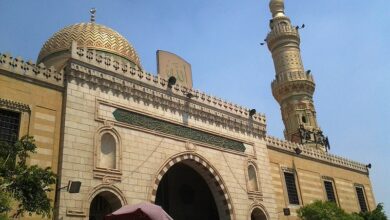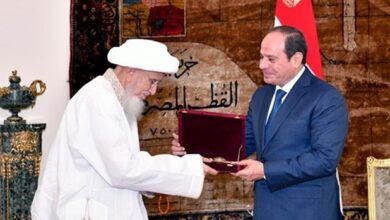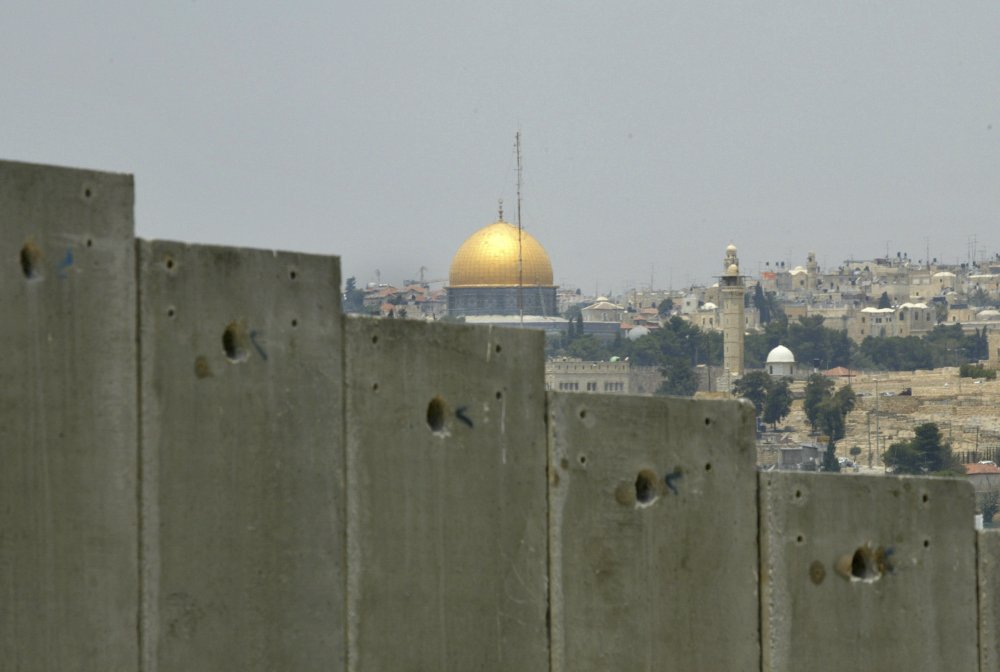
A prominent columnist on Sunday delivered the harshest attack to date against Egypt's president in the local media, saying that Abdel-Fattah al-Sisi presided over a "theocracy" that is no different from the Islamist-led government he overthrew in 2013.
In a front-page column in the al-Maqal daily, Ibrahim Eissa expressed outrage over a two-year prison sentence issued Saturday against author Ahmed Naji for publishing a sexually explicit excerpt of his novel that prosecutors said violated "public modesty."
The sentence has angered Egyptian authors and artists, who say it's a blatant encroachment on the freedom of expression and artistic creativity enshrined in Egypt's new constitution. A statement signed by 13 rights groups and published Sunday called for Naji's immediate release.
Al-Sisi maintains that Egypt's judiciary is independent, an assertion disputed by rights activists, who say it is beholden to the executive branch.
As military chief, al-Sisi led the 2013 overthrow of President Mohammed Morsi, an Islamist who was Egypt's first freely elected president but proved deeply divisive. Al-Sisi was elected the following year, and has enjoyed fawning coverage by state and private media, most of which is owned by influential businessmen.
But the unusually strong criticism by Eissa, a dean of the Egyptian media who supported the 2013 overthrow and has personally interviewed el-Sissi, indicates growing discontent.
"Say what you will, Mr. President, and speak at your conferences … as you wish, but the reality of your state is different," he wrote. "Your state violates the constitution, harasses thinkers and creators and jails writers and authors.
"Your state is a theocracy, Mr. President, while you are talking all the time of a modern, civilian state," he wrote. "Your state and its agencies, just like those of your predecessor, hate intellectuals, thought and creativity and only like hypocrites, flatterers and composers of poems of support and flattery."
The growing criticism comes as the Egyptian government has struggled to deliver on promises to stabilize the economy after the years of unrest that followed the 2011 uprising, which ended President Hosni Mubarak's nearly three-decade reign.
The bombing of a Russian passenger jet last year dealt a major blow to the already suffering tourism industry, the local currency is weakening and foreign reserves are drying up.
An Islamic insurgency based in the Sinai Peninsula, which grew increasingly assertive after Morsi's ouster, has been able to carry out attacks across the country, adding to the sense of crisis.
Al-Sisi has meanwhile overseen the harshest crackdown in decades, jailing thousands of Islamists and hundreds of secular activists. All unauthorized protests have been banned, and activists say the police have reverted to the brutality of the Mubarak years.
Al-Sisi has said his ouster of Morsi saved Egypt from a theocracy and restored civilian, democratic rule. But Eissa called that claim into question.
"Where is this civilian state? Where do you see it?" he wrote, addressing al-Sisi. "This is a state that witnesses more legal prosecution of writers than what we have seen during the Brotherhood's one-year rule."




